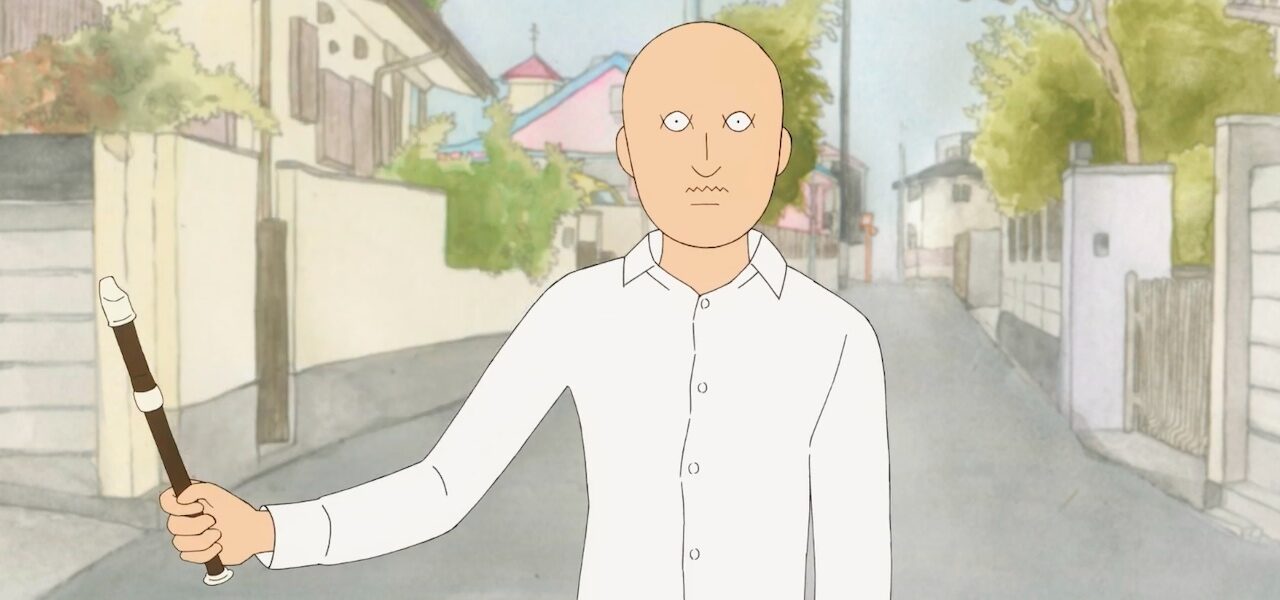
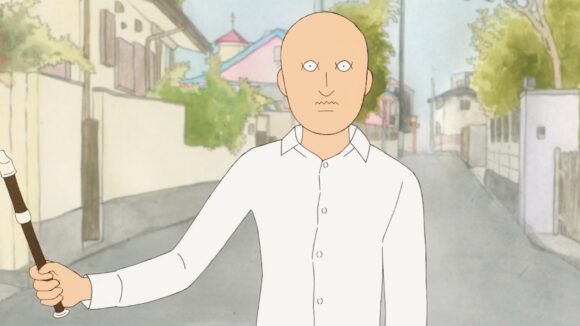
No Budget? No Professional Animators? No Problem For Kenji Iwaisawa, Director Of The Madcap Anime Feature ‘Our Sound’
Our Sound is a film about musicians who can’t play music, animated mostly by people with no prior experience in animation. With its madcap humor and uncompromisingly indie credentials, it has plowed its own furrow right through the studio-dominated landscape of Japanese animated features.
Produced on a shoestring budget over seven and a half years, Our Sound (also known as On-Gaku: Our Sound) opened strong, taking the top feature prize on its world premiere at Ottawa (OIAF) last year. The jury praised “the perfect timing, the simplicity of design, and the joyous celebration of the medium of animation” — a tribute I can’t improve on. The film is in competition at Annecy’s virtual edition, which starts today (badgeholders will be able to watch a ten-minute preview).
This success will be gratifying for director Kenji Iwaisawa, who made the film on his own terms, using mostly private money (including crowdfunding). These circumstances obliged him to hire animators with no experience in the medium, as he tells us below. Iwaisawa, whose credits include the short film Man in the Tunnel Alley and animation work on hybrid features, drew the storyboards, designed the backgrounds, and handled much of the animation himself.
Our Sound is based on Hiroyuki Ohashi’s self-published manga about a group of deadbeat high-schoolers who pick up instruments to pass the time, and end up really getting into their music. The film preserves the comic’s idiosyncratic style — Ohashi himself was closely involved with the production — but also harnesses the unique capabilities of animation, making effective use of rotoscoping, and veering into dynamic abstraction in the climactic gig.
How did the team pull it off? Ahead of Annecy, we put a few questions to Iwaisawa.
Cartoon Brew: I read that when you first tried to adapt Hiroyuki Ohashi’s manga, you almost gave up. Why? What convinced you to carry on?
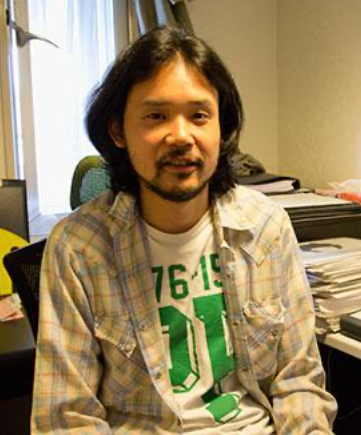
Kenji Iwaisawa: When I decided to adapt the manga, I couldn’t think of a way to express the sounds in it, and it seemed like I might have difficulties. But after around a year, realizing that no progress would be made if I waited around for an idea about the sounds to come to me, I changed my approach. I decided to stop worrying about the issue of the sounds and start production, expecting that an idea would eventually come to me if I got to work.
For me, the brilliance of the manga lies in the characters and story, so the most important thing when creating my film was to make those characters move.
Why did you decide to produce the film independently, and not in a studio? How many people were on the production team in total?
I’m a director with absolutely no career experience in anime and cinema, and the manga wasn’t a big seller, so I figured that it would be tricky to find the budget. As a result, producing in a studio was never an option. On top of that, with independent production, you can work without drawing up a contract — that was another crucial point.
But because we had no budget to speak of, we couldn’t get professional animators or anyone onboard, so we found our staff through social networking services. In the first year or two of production, we found around 20 people through online call-outs, but almost none of them had experience making animation. At the beginning, we forged ahead with production through trial and error, myself included.
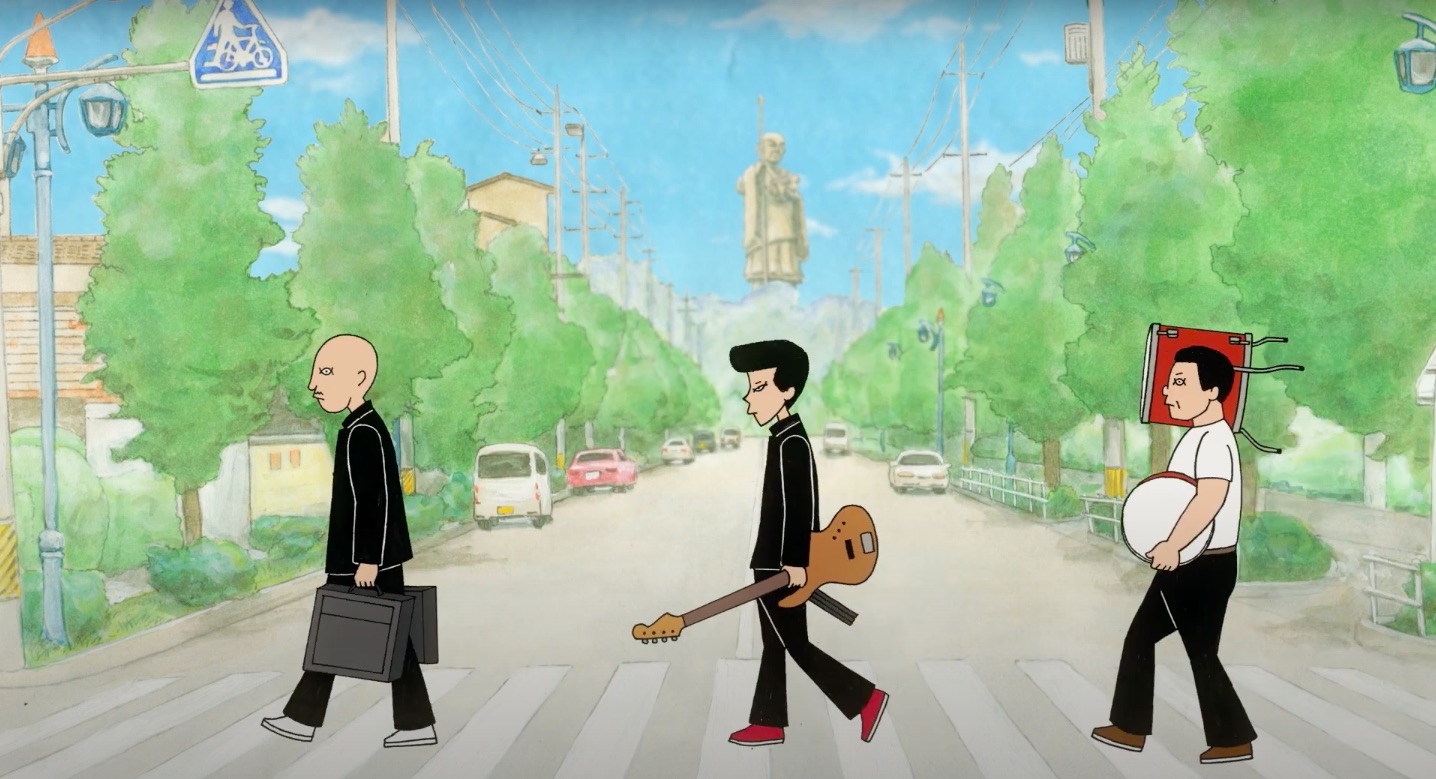
Are there any specific independent animation filmmakers who inspired you to make a feature in this way, whether in Japan or elsewhere?
Among people with an independent background, my biggest influence is Sylvain Chomet. As for Japanese filmmakers, I’ve seen many works by Koji Yamamura, so he must have influenced me. I also watched a lot of films by Gianluigi Toccafondo and Georges Schwizgebel.
Apart from crowdfunding, how did you find the budget? Can you tell me what the total budget was?
Proceeds from selling t-shirts and other goods, a bit of support from the government, pocket money from several close friends, and my own savings. I can’t disclose the budget, but I believe it was one tenth of what is normally needed to produce an anime feature on this scale.
Were you simultaneously working on other projects during the production?
No, I wasn’t. For seven and a half years I worked only on our Our Sound, without pay. I picked up odd jobs and somehow managed to get by.
You hand-drew the frames, using rotoscoping. Why did you adopt this approach, which is rare in anime filmmaking today?
In Japan, rotoscoping seems to be regarded as a demanding process that takes money and time. On the contrary, I believe it lets you cut down on both.
Including myself, there were around six main animators on the team, only two of whom were experienced. As we had no budget, we generally couldn’t get our staff to commit the hours we needed, which dragged things out — if we’d tried to animate the orthodox way, I don’t think we’d have been able to produce an animated feature. I’m convinced that rotoscoping is what let us finish the film, however long it took.
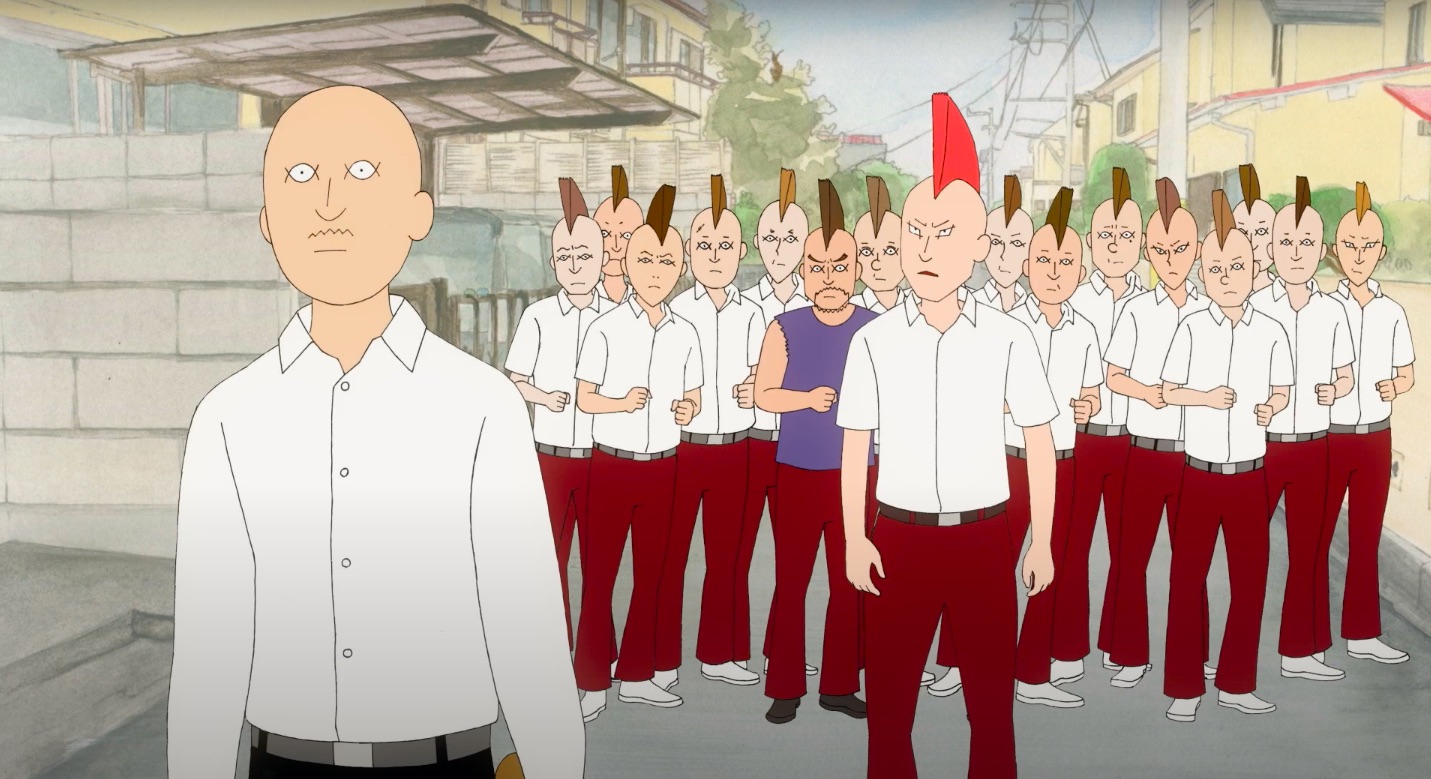
What exactly was Ohashi’s role on the production? What did you learn from working with him?
Ohashi-san helped a lot, not just as the author of the manga but also as my producer. During the seven and a half years, there were countless times when his advice enabled me to overcome difficulties. It helped that our homes are only around five minutes’ walk from each other.
The biggest thing I got from working with him was the importance of staying humble. Once I decide to do something, I’m the type of person who lets nothing stand in my way, no matter who tells me what. But that sometimes leaves me isolated, and in the team sport that is film production, it can be fatal. Ohashi-san is well respected, and many people supported the production because they like him.
The music is obviously important in Our Sound. The manga contains no actual music, of course. How hard was it to find the right music for the film?
Deciding what to do with the music was the first hurdle to clear with this film, but the truth is that this barely posed any difficulties.
I can’t play any instruments at all, so in practice I found musicians to compose tracks for the film, then gave them existing music to listen to for reference, and explained to them what I wanted. It can’t have been easy for them to write such wonderful music based on my clumsy directions, but I feel that it went more smoothly than I’d anticipated.
(Iwaisawa’s answers were translated from Japanese by this piece’s writer. “Our Sound” will be released in the U.K. later in the year by Anime Limited. A North American distributor has not been announced at the time of writing.)

.png)